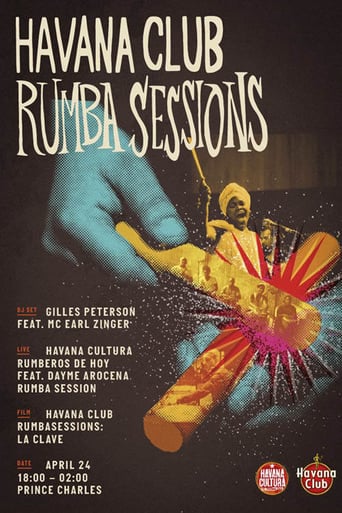Gilles Peterson, along with his old friend Ade Egun Crispin Robinson, guides the audience through rumba's continued significance in a country where a carefully preserved past has long sat side-by-side with innovation. The history of rumba, inextricably tied up with the slave trade, uniquely intertwines West African and Iberian musical styles. With roots in the Congo, Nigeria, Benin and Cameroon, different African religious institutions such as Ifa, Ekpe and Nkisi were remade in Cuba as Lukumi (Santeria), Palo, Abakua and Arara. The film draws together religious and social realities instituted by the African diaspora which have a distinct, if complex, connection to the rhythms foundational to contemporary club music.



